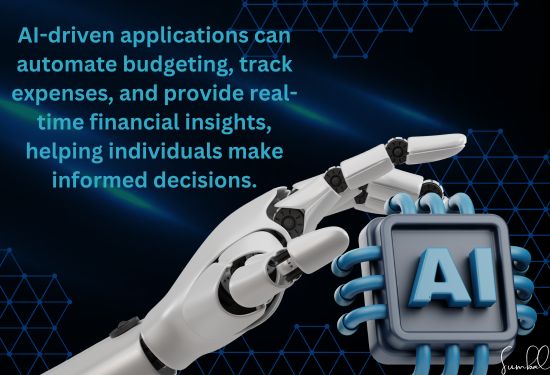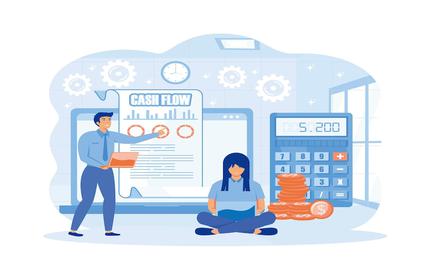Due to artificial intelligence (AI), people who previously had to spend hours on calculations can now manage their personal finances easily . Applications for virtual finance managers and budgeting are now available, enabling people to monitor their expenditures and make careful financial choices. Let’s have a look at AI's capabilities in shaping personal finance and how it makes people’s money journeys easy.

Personalized Budgeting Made Simple
The advantage of using AI in personal finance is that it helps personalize a person’s budget. Common approaches to budgeting in the past involved letting consumers enter the details of the expenses tracking, classify these expenses, and then make the necessary changes in the expenditure pattern. Today, AI-based budgeting apps can analyze users’ multiple spending records in real time to categorize them.
AI budgeting tools also adjust spending patterns, meaning one can make a perfect budget. For instance, it will recommend cutting the total amount spent if the user has bought more eating-out habits or setting particular barriers to cover the extra amount. This automated approach serves the same purpose of helping the user’s budget without needing to monitor it constantly.
Smart Savings and Financial Goals
One popular motive people usually set for themselves is to save money, but they often need to do this regularly. Sophisticated applications of AI reduce the complexity of this process by tracking income and spending and then proposing achievable goals for saving money. Depending on the user's spending, others enable algorithms to move little amounts of money from a user's checking account to a savings account.. For example, Digit checks or reviews daily expenditures and then deduct small amounts, helping them save money without even noticing it.

Virtual Financial Assistants and Chatbots
Chatbots like Cleo and Erica (an AI financial specialist at Bank of America) provide personal assistance based on financial questions and immediate recommendations. These chatbots use NLP as a tool and facility to resolve customer queries, including balances, previous transactions, or advice on cutting unwanted expenditures. For instance, a user may ask, ' What did I spend on groceries last month?’ The calculated result can also be displayed instantaneously.

Smarter Decision-Making Without Expert Knowledge
AI in personal finance also means that this service will assist the user in making better decisions regarding the use of money. AI-based models enable one to understand data collected from different sources, and this is something only a financial expert would do. For instance, some AI apps use algorithms to recommend that, based on a user’s credit rating, income, and spending habits, it is now the perfect time to clear that credit card bill or, perhaps, the best time to invest.
Some of the top apps even sign up for automatic investment plans. Apps like Betterment and Wealthfront are AI robots that invest on behalf of the consumer after analyzing their financial needs, objectives, and time frame. This makes investing easy for individuals who need more time or knowledge to manage investments on their own.

How to Plan for Early Retirement in Your 30s

Asset Preservation in Turbulent Eras

Young Adults’ Monthly Cash Flow Hacks

Top 3 Car Insurance Providers for Young Drivers in 2024

How to Find the Best Mortgage Rates in 2024

Diversifying Your Stock Portfolio

Credit Card Strategy: Maximize Rewards
